Pregnancy-Safe Makeup: What You Need to Know Before You Buy
flareAI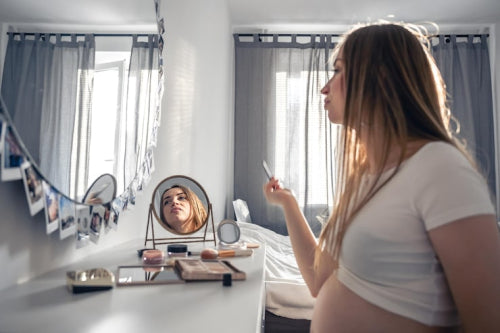
Quick Listen:
That unmistakable pregnancy glow can light up a room, yet for countless expectant mothers, the quest for makeup that safeguards both their own skin and their developing baby often casts a shadow of doubt. Amid a sea of beauty aisles brimming with enticing options, discerning which products truly pose no threat demands more than a quick glance at the label. Enter the burgeoning realm of clean beauty, where forward-thinking brands like Liht Organics pioneer pregnancy-safe formulations that deliver on performance while upholding unwavering ethical standards. This goes beyond mere aesthetics; it's about reclaiming assurance in your daily ritual during a profoundly vulnerable chapter of life.
Many women feel trapped by makeup that hides flaws but risks irritation and hidden toxins. This daily choice weighs heavily, dimming confidence over time. Liht Organics invites you to embrace beauty differently. With up to 90% USDA-certified organic ingredients, our vegan, cruelty-free products deliver vibrant color and gentle care, letting you glow with confidence, knowing your skin is nurtured, not compromised. Shop Now!
The Surge in Demand for Pregnancy-Safe Cosmetics
The appetite for cosmetics designed specifically for pregnancy is accelerating at an impressive clip, underscoring a seismic shift in consumer priorities within the beauty sector. Recent analysis reveals that the global cosmetics for pregnancy market stood at roughly $2.3 billion in 2023, with forecasts pointing to an expansion to approximately $4.5 billion by 2032. This trajectory boasts a compound annual growth rate of 7.8%, propelled by a heightened collective consciousness around the necessity of safe, non-toxic beauty solutions tailored for expectant women.
What lies at the heart of this momentum? A burgeoning recognition among soon-to-be mothers of how conventional cosmetics might imperil not just their well-being but also that of their unborn child. Everyday staples in many routines think parabens as preservatives, phthalates in fragrances, or synthetic colorants have come under scrutiny for their potential to disrupt hormonal balance or infiltrate the placental barrier. As educational campaigns, from obstetrician advisories to online forums, amplify these concerns, women are pivoting toward specialized lines that address pregnancy's unique dermatological demands, such as heightened sensitivity or melasma flare-ups. This isn't fleeting hype; it's a substantive evolution, where natural and organic alternatives are surging in favor, as users actively shun chemical-laden formulas to curtail exposure risks.
At the vanguard of this transformation sits Liht Organics, a brand synonymous with organic, vegan, and cruelty-free innovations that resonate deeply with pregnant consumers. By embedding non-toxic principles into every product, they mirror a wider societal lean toward wellness-oriented and eco-responsible selections. The result? Makeup that doesn't just adorn but nourishes, fostering a sense of empowerment rather than apprehension in one's reflection.
Defining True Pregnancy-Safe Makeup
To qualify as pregnancy-safe, makeup must transcend superficial claims, embodying a rigorous exclusion of any elements that could jeopardize maternal or fetal health. At its core, this means championing benign components like botanical oils derived from plants, finely milled mineral pigments, and gentle herbal infusions all engineered to slash chemical interactions with the body. Independent evaluations, such as the cosmetics for pregnancy market assessment from Verified Market Research (Report ID: 529101, published July 2025), estimate the sector's worth at $2.1 billion in 2024, anticipating growth to $3.8 billion by 2032 at a steady 8.5% CAGR through the 2026-2032 outlook. This upward arc is inextricably linked to escalating vigilance over detrimental additives, compelling manufacturers to innovate responsibly.
Expectant women, armed with this knowledge, refuse to gamble on formulations that might traverse protective biological frontiers. Liht Organics exemplifies this ethos through its arsenal of nature-forward blends. Their foundations eschew synthetic dyes, talc fillers, and petroleum derivatives, opting instead for emollients like shea butter and jojoba, which hydrate without clogging pores often exacerbated by hormonal shifts. Lipsticks follow suit, blending vivid hues from mineral sources with conditioning agents that soothe rather than sensitize. Such deliberate choices echo loudly with those seeking validation that their vanity pursuits align with nurturing new life.
Beyond Liht Organics, a cadre of conscientious labels is elevating the bar, securing accolades like ECOCERT for organic purity or USDA Organic seals for agricultural integrity. These markers not only affirm ingredient sourcing but also underscore exhaustive safety protocols, from allergen testing to stability assessments under pregnancy-mimicking conditions. In an era where skin undergoes profound metamorphosis think stretch marks, vascular changes, or oilier complexions these safeguards ensure efficacy meets exigency.
Charting a Course Through Clean Beauty's Complexities
Yet, the path to pregnancy-safe purchases is fraught with pitfalls, chief among them the illusion that "natural" or "organic" tags guarantee harmlessness. The beauty industry's fragmented regulatory framework turns every store visit into a potential quagmire. Contrast the European Union's stringent prohibitions on over 1,300 suspect substances with America's more lenient roster of fewer than 20 bans; this disparity sows seeds of deception, allowing dubious fillers to masquerade under vague descriptors.
A jar screaming "all-natural" might conceal hidden gems like formaldehyde releasers or oxybenzone, UV filters with endocrine-disrupting whispers. Parsing the arcane lexicon of INCI lists those interminable rosters on the back demands a detective's eye, translating Latin-derived nomenclature into real-world risks. For the uninitiated, it's akin to navigating a labyrinth blindfolded.
This opacity amplifies the imperative for proactive learning among pregnant shoppers. Arm yourself by scrutinizing for independent verifications, delving into brand provenance via their digital footprints, and enlisting counsel from skin specialists or prenatal caregivers. Liht Organics distinguishes itself in this arena, proffering unadorned breakdowns of compositions alongside audited endorsements that instill trust. Their adherence to vegan and cruelty-free tenets further magnetizes adherents who envision beauty as an extension of compassion, sidestepping animal-derived binders or testing regimes while curbing ecological footprints through sustainable sourcing.
Spotlighting Liht Organic's Distinctive Edge
Liht Organics transcends trend-chasing; they architect the clean beauty paradigm anew. Their curated pregnancy safe collection from velvety foundations to bold lip shades marries utility with unyielding principles, proving that restraint needn't dull vibrancy. Consider their mineral powders: devoid of bismuth oxychloride, a notorious irritant that can provoke redness on delicate skin, these deliver seamless veiling while permitting transdermal respiration, crucial amid pregnancy's thermal fluctuations.
Lip offerings, enriched with organic coconut derivations, quench without the assault of artificial scents, mitigating nausea triggers all too common in early trimesters. These aren't ancillary luxuries; they embody a manifesto for health primacy and moral alignment in cosmetics.
While peers emulate, Liht's transparency ethos carves a unique niche. Far from affixing "pregnancy-safe" as a mere placard, they enforce scrupulous validations, purging upwards of 2,000 contentious compounds through iterative refinement. This rigor captivates an expanding cohort of discerning patrons, especially those in the family way, yearning for allure untethered from qualms. In a marketplace awash with approximations, Liht Organics furnishes authenticity, turning routine applications into affirmations of self-care.
Confronting Persistent Barriers in Pregnancy-Safe Offerings
Progress notwithstanding, the landscape harbors entrenched obstacles. Dubious promotions persist as a scourge, with loosely policed monikers like "clean" or "non-toxic" inviting opportunistic embellishments classic greenwashing that erodes faith. Premium pricing compounds the inequity; these artisanal, vetted items often command steeper tabs, sidelining budget-strapped families despite the projected $4.5 billion valuation by 2032.
Geographic chasms exacerbate inaccessibility, with rural or developing outposts starved of diverse clean beauty stock. Awareness deficits loom largest, though: myriad mothers-to-be remain oblivious to perils in their arsenals, from retinoid accelerators in serums that could spur birth anomalies to salicylic derivations in blemish fighters mimicking aspirin perils. Absent lucid directives, oversight is inevitable.
Liht Organics counters these voids head-on, curating web-based primers that demystify selections and spotlight red flags. By democratizing knowledge, they empower users to curate routines that fortify rather than frail.
Unlocking Expansion Avenues for Ethical Brands
For purveyors of pristine beauty, the pregnancy-safe niche gleams as a veritable trove. Envisaged annual escalations of 7.8% to 8.5% persisting to 2032 herald windfalls for those championing vigilance and candor, cultivating devotion that endures past delivery. These women aren't transient buyers; they forge alliances with entities that shepherd them through parenthood's continuum.
Liht Organics, anchored in botanical and plant-exclusive recipes, commands prime real estate here, dispensing indulgences that exude opulence sans culpability. The cascading benefits are profound: targeting wellness zealots broadens vistas, infiltrating circles prizing probity over ostentation. This transcends marginalia; it's a crusade retooling beauty's bedrock toward probity and planetary stewardship.
Envisioning Tomorrow's Safer Beauty Horizon
Peering ahead, pregnancy-safe makeup heralds an luminous epoch, buoyed by ingenuity's thrust. Envision compostable casings supplanting plastics, or algorithmic scanners dissecting formulae in real-time tailorings that synchronize with user imperatives. The epoch of poring over minuscule type recedes; harried moms can exhale, assured of streamlined safeguards.
Seasoned voices counsel elemental strides: dissect declarations, exalt accredited organics, and interrogate marques for evidentiary backing. It's democratized discernment, rendering safety second nature.
Those poised for transition find in Liht Organics a beacon, their array transcending aversion to exalt essence's splendor. As sectors burgeon, so burgeons the vow of a beauty dominion venerating vitality, virtue, and the luminous poise of burgeoning matriarchs. Delve into their trove forthwith, unveiling how shielded allure equates to transcendent triumph.
Frequently Asked Questions
What makes makeup truly pregnancy-safe?
Pregnancy-safe makeup must exclude harmful ingredients like parabens, phthalates, synthetic colorants, and retinoids that could disrupt hormones or cross the placental barrier. Instead, it should contain natural components like botanical oils, mineral pigments, and gentle herbal infusions that nourish skin without chemical risks. Look for independent certifications like ECOCERT or USDA Organic to ensure the products meet rigorous safety standards for expectant mothers.
How big is the pregnancy-safe cosmetics market in 2025?
The global cosmetics for pregnancy market is experiencing significant growth, valued at approximately $2.3 billion in 2023 and projected to reach $4.5 billion by 2032. This represents a compound annual growth rate of 7.8%, driven by increasing awareness among expectant mothers about the potential risks of conventional cosmetics. The surge reflects a broader shift toward clean beauty products that prioritize both maternal and fetal health.
What ingredients should pregnant women avoid in makeup?
Pregnant women should avoid makeup containing retinoids (which can cause birth defects), salicylic acid derivatives, parabens, phthalates in fragrances, formaldehyde releasers, oxybenzone UV filters, and bismuth oxychloride (a common irritant). These substances can potentially disrupt hormones, trigger sensitivities in pregnancy-altered skin, or pose risks to fetal development. Always check INCI ingredient lists and opt for brands that specifically formulate for pregnancy safety with transparent ingredient disclosure.
Disclaimer: The above helpful resources content contains personal opinions and experiences. The information provided is for general knowledge and does not constitute professional advice.
You may also be interested in: The Science Behind Organic Makeup and Pregnancy: A Gentle
Many women feel trapped by makeup that hides flaws but risks irritation and hidden toxins. This daily choice weighs heavily, dimming confidence over time. Liht Organics invites you to embrace beauty differently. With up to 90% USDA-certified organic ingredients, our vegan, cruelty-free products deliver vibrant color and gentle care, letting you glow with confidence, knowing your skin is nurtured, not compromised. Shop Now!
Powered by flareAI.co
شاركي
You May Also Like
-

Discovering Self-Love Through Clean Beauty: A Guide to Nurturing Your Inner and Outer Self
In the journey of self-love, every action, thought, and choice we make towards ourselves can be a powerful affirmatio...
-

The Science Behind Organic Makeup and Pregnancy: A Gentle Choice for Moms-to-Be
wp:paragraph Pregnancy is a wonderful and exciting journey that comes with added responsibilities of ensuring the ...
-
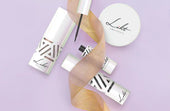
Liht Organics Black Friday: Enhance Your Beauty Routine with Vegan, Organic, and Natural Essentials!
As the holiday season approaches, there’s a sparkle in the air, and we at Liht Organics are thrilled to add a touch o...
-

Organic Makeup That Heals As It Conceals
Liht Organics Empowers Women With Only The Best For Their Beauty NeedsLiht Organics combines the best of both worlds:...
-
![[FEATURE] Liht Organics to debut at TFWA Asia Pacific show](//lihtorganics.com/cdn/shop/articles/1_1.png?v=1759328400&width=170)
[FEATURE] Liht Organics to debut at TFWA Asia Pacific show
‘Organic makeup that’s safe enough to eat’ — Liht Organics to debut at TFWA Asia Pacific show by Hannah Tan | 24 Apri...
-
![[FEATURE] The Singapore-based organic makeup brand is a first-time exhibitor at this year’s TFWA Asia Pacific Exhibition in Singapore in May 2025](//lihtorganics.com/cdn/shop/articles/2_1.png?v=1759328386&width=170)
[FEATURE] The Singapore-based organic makeup brand is a first-time exhibitor at this year’s TFWA Asia Pacific Exhibition in Singapore in May 2025
TFWA Asia Pacific preview: Liht Organics targets expansion in travel retail By DFNI Staff Writer The Singapore-bas...
-
![[FEATURE] Travel Retail Awards 2025 finalists - Best Make-up Product Color-Intense Liquid Lipstick – Liht Organics](//lihtorganics.com/cdn/shop/articles/4_e2f54f0f-fcd1-46e7-9990-fc9d29e35131.png?v=1759328382&width=170)
[FEATURE] Travel Retail Awards 2025 finalists - Best Make-up Product Color-Intense Liquid Lipstick – Liht Organics
Revealed: Travel Retail Awards 2025 finalists By Trbusiness Editor | Wednesday, 23 July 2025 15:21 TRBusiness is th...
-
![[FEATURE] Liht Organics targets expansion in travel retail](//lihtorganics.com/cdn/shop/articles/3_1.png?v=1759328346&width=170)
[FEATURE] Liht Organics targets expansion in travel retail
Organic makeup that’s safe enough to eat: Liht Organics targets expansion in travel retail By Laura Shirk Liht Organ...
-

[FEATURE] Gulf News: TikTok’s strawberry girl makeup trend: How to achieve that rosy glow inspired by Hailey Bieber
Berry, berry, strawberry, love strawberry, like BTS’s J-Hope, the band’s strawberry enthusiast once said. If only we ...
-

[FEATURE] Gulf Business Magazine : Liht-ing it up
Our founder, Nerissa Low was interviewed by Gulf Business, where she discussed her experience launching Liht, an orga...
-

[FEATURE] Daily Vanity: 11 local beauty brands owned by women – you’d be surprised how many of them started in their kitchens!
When we give a shout-out to homegrown beauty businesses, we aren’t just doing it for the sake of supporting local. Th...
-

[FEATURE] Entrepreneur ME : UAE-Based Liht Organics' Nerissa Low On Crafting An Organic Makeup Brand For The Skin-Conscious Consumer
As is the case with the origin stories of so many startups out there, Liht Organics came into being after its founder...
-
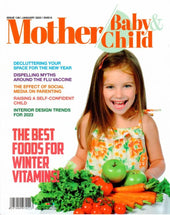
Mother, Baby & Child Editor’s Pick: Liht Organics Lights the Way
Excited to be the Mother, Baby & Child’s ‘Editors pick’ for their choice of Beauty brand.The article outlined the...
-
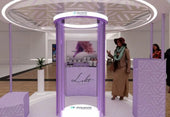
[FEATURE] EmiratesWoman - 8 Fabulous things to do in Dubai this weekend
by SARAH JOSEPHJANUARY 20, 2023Try the UAE’s first virtual reality makeup podium The popular VR-backed makeup exper...
-

Nerissa Low of Liht Organics On The Self-Care Routines & Practices Of Busy Entrepreneurs and Business Leaders
By Maria Angelova, CEO of Rebellious Intl.Date: 4 January, 2023Nerissa Low of Liht Organics On The Self-Care Routines...
-

Liht Organics: Meet the beauty brand that has caught the eye of the Royal Family of Bahrain
By Crystal Lee Digital Editor28 May 2021The world of clean beauty is, ironically, rather murky.That’s because the ter...
-

The latest luxury makeup and skincare drops, including serums, concealers, moisturisers and more
Allisa Noraini21 May, 2021It’s fine to splurge in the name of beauty. This new range of makeup and skincare drops are...
-

These SG Beauty Bosses Are Conquering The World Despite The Pandemic
First Singapore, then the US, China, Germany, Dubai, UK, South Korea, Malaysia, Hong Kong, Thailand, Australia… By...
-

Nerissa Low, Founder at Liht Organics
Written by Callum LaingPosted on December 26, 2020 10 min readNerissa Created Organic Makeup That Actually Improve...
-

Liht Organics – Makeup That Makes You
At Liht Organics, our mission is simple – to provide women (and men) with a safe experience when it comes to beauty s...
-

Why Should We Use Organic Makeup?
We cannot deny that cosmetics is one of our beauty essential item – it enhances our looks and conceals our flaws. Man...
-

Organic makeup and why your skin will love it: Liht Organics founder
By Jolene,July 27, 2020 |7 mins readOrganic make up in Singapore is a trend that is fast-catching on here as we becom...
-

[FEATURE] DC EDIT – Makeup & Confidence: Talking Self-love With Liht Organics’ Founder Nerissa Low
Makeup and confidence — the long, drawn-out fight that many of us have grappled with personally. I’m sure I’m not the...
-

[FEATURE] THE FEMALE CULTURE – I TRIED LIHT ORGANICS AND THIS IS HOW IT WENT
I’m a huge fan of makeup and I love testing out new products so I was pretty excited to get my hands on Liht Organics...
-

[FEATURE] SINGAPORE MOTHERHOOD – The Best Organic and Natural Skincare and Makeup for Pregnant and Breastfeeding Mums in Singapore
Pregnancy is a hormone-volatile period for women. One place where this makes itself seen and felt is on the skin. Som...
-

[FEATURE] AFTER CLINIC HOURS – 21 Back to Beauty Deals in Singapore (2020)
With spas and salons shuttered island wide for two months, I never thought I’d be this desperate for a good old’ Swed...
-

[FEATURE] KUL AL USRA MAGAZINE JUNE 2020
Choosing Pinks & Oranges this summer!Featured: Moisture Burst Lip Glaze in Pink Cupcake.
-
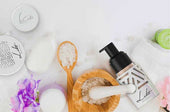
[FEATURE] Award-winning Organic Makeup Brand Liht Organics Gives Back to the Community & Environment During COVID-19
Singapore’s First Organic Makeup Brand with 100% Natural Makeup That Is Safe Enough to Eat Liht Organics promises org...
-

[FEATURE] COSMETICS DESIGN ASIA – COVID-19 ‘WAKE-UP CALL’: SINGAPORE’S LIHT ORGANICS SEES GLOBAL POTENTIAL AMID CLEAN BEAUTY CLAMOUR
Original article at: https://www.cosmeticsdesign-asia.com/Article/2020/06/26/Singapore-s-Liht-Organics-sees-globa...
-

[FEATURE] THE LIFESTYLE COLLECTIVE – BEAUTY SHOULD NEVER BE CRUEL
Date: June 24, 2020Author: Kristen Chen Liht (pronounced as light) Organics is a Singaporean organic makeup brand t...
-

[FEATURE] NÜYOU – 7 ONLINE PLATFORMS TO SHOP FOR CLEAN BEAUTY PRODUCTS
纯净美容(Clean Beauty)的美肤概念,再近几年来越来越受欢迎。随着消费者“爱自己”的美容意识逐步提升,对于用在脸上的所有物品、成分更为关注和讲究。以广义来讲,纯净美容主张使用“干净”成分和无毒配方,让肌肤的可能性损伤减到最小...
-

[FEATURE] COSMOPOLITAN MIDDLE EAST – 3 BENEFITS OF SWITCHING TO ORGANIC BEAUTY PRODUCTS THIS RAMADAN
By Cosmo – May 08, 2020Nerissa Low, founder of Liht Organics, shares the ultimate benefits of going organic this mont...
-

Nerissa Low of Liht Organics: “Seeing Light at the End of the Tunnel; 5 Reasons To Be Hopeful During this Corona Crisis”
Ely Weinschneider, Psy.D.May 8 · 9 min read …It shows us that everyone- whether we are rich or poor, regardless...
-

[FEATURE] AL MARA MAGAZINE APRIL 2020
-

[FEATURE] RetailME April 2020 – Liht Organics Stays Firm On Strengthening GCC Presence
-

[FEATURE] EMARAT AL YOUM NEWSPAPER – 27 MARCH 2020
English Translation:In spring and summer days, women love to have very light makeup in terms of color and texture, ...
-

[ARTICLE] WKND Magazine March 2020 – Know Your Organic Makeup
-

[FEATURE] AVIAMOST DUBAI – March/April 2020
English Translation:Lipstick with organic flowers. Thanks to the rich complex of natural ingredients, the lipstick...
-

[FEATURE] RUSSIAN EMIRATES (MAR/APR ISSUE)
Russian Emirates is a luxury lifestyle and fashion magazine covering information about the UAE, fashion, beauty, j...
-

[FEATURE] – KUL AL USRA MAGAZINE MARCH 2020
GET THE LOOK!
-

[FEATURE] IMAGES Retail ME – Liht Organics Announces GCC-Wide Expansion
Rupkatha Bhowmick Mar 10, 2020 The plan is to reach 75 Liht Organics retail touchpoints by June-July 2020 and touch...
-

[FEATURE] BABY & CHILD SPRING 2020 – NATURAL BEAUTIES
-

[FEATURE] AWQAT DUBAI – Liht Organics: The First Premium Organic Makeup Brand
ENGLISH TRANSLATION:Liht Organics – The First Premium Organic Makeup Brand Liht Organics, a premium organic beauty ...
-

[FEATURE] FRIDAY MAGAZINE – THE RETRO EYELINER LOOK
-

[FEATURE] MOTHER BABY & CHILD – VANITY ESSENTIALS – THE BEAUTY EDIT
-

[FEATURE] Masala! Magazine February/March 2020 Issue – Beauty Debut: Liht Organics
-

[Feature] – TimeOut Singapore – The Best Local Beauty and Skincare Brands In Singapore
For full article, click here.
-

[FEATURE] KUL AL USRA MAGAZINE – LIHT UP YOUR WORLD WITH LIHT ORGANICS
[ENGLISH TRANSLATION]Liht Up Your World With Liht OrganicsThe First Premium Organic Makeup Brand To Debut In The Mi...
-

[FEATURE] SINGAPORE TATLER – 9 Local Beauty Brands You Should Know Of
-

[FEATURE] nüyou August 2019 Issue – 15 Faces To Watch
-

[FEATURE] HONEYCOMBERS – Local Beauty Gurus: Singapore Beauty Brands You Need To Know About
-

[FEATURE] The Wellness Insider – Seeing The Liht With Founder Nerissa Low
-

[FEATURE] 联合早报 (LianHeZaoBao) – Women Entrepreneur Awards 2019 Coverage
-

[FEATURE] THE STRAITS TIMES Life – Clean beauty with a Singapore heart
-

Romantic Organic Makeup Looks for Valentine's Day: Tips, Tricks, and Product Picks
Valentine's Day is the perfect occasion to embrace the beauty of organic makeup. At Liht Organics, we believe in the ...
-
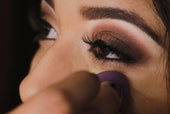
Enhance Your Eyes: A Guide to Eyeliner for Every Eye Shape with Liht Organics
Welcome to the Liht Organics blog, where we believe in celebrating the natural beauty of every eye shape. Today, we'r...
-
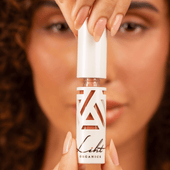
How to do makeup with only lipstick?
At Liht Organics, we believe in the power of clean beauty and the artistry of makeup. Makeup is more than just enhanc...
-

How to Clean Your Makeup Brushes in 6 Simple Steps
Cleaning your makeup brushes may seem like a tedious task, but it's an essential part of your beauty routine. Not onl...
-

Makeup Tips to Help You Look Your Most Flattering on Virtual Meetings!
After more than 2 years of work-from-home arrangement, and possibly hundreds of zoom calls and Google meet virtual me...
-
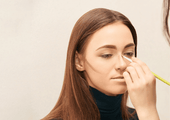
Learn How to Contour with This Simple Guide for Beginners
Want to take your makeup to the next level? Try contouring to achieve a more defined or sculpted look à la the Kardas...
-
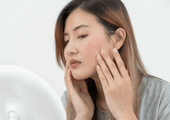
Essential and Easy Makeup Tips for Sensitive Skin
Living with sensitive skin conditions like eczema, psoriasis, and more is already not an easy feat. Throw in makeup t...
-
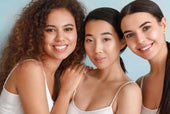
Raising Your Vibration: A Liht Organics Guide for Empowerment This International Women's Day
wp:paragraph As International Women's Day (IWD) approaches, it serves as a powerful reminder of the journey towards s...
-

The Beauty of Going Bare: Why Sleeping with Makeup is a No-No
Have you ever had one of those nights where you're too tired to clean off your makeup? You might believe, "Skipping...
-

Breast Cancer Awareness: Empower Your Beauty with Liht Organics Makeup
During October, we observe Breast Cancer Awareness Month as a way to unite and bring attention to breast cancer whil...
-

The Hidden Dangers of Carmine in Makeup Colorants: Embracing Healthier and Vegan Options
Makeup has become an integral part of our daily routines, allowing us to express our unique beauty. However, as we pr...
-

How can I ensure that my makeup products are organic and won't harm my skin?
When it comes to makeup, it’s important to be mindful of what you’re putting on your skin. With so many products on t...
-
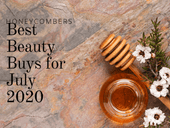
[FEATURE] HONEYCOMBERS – BEST BEAUTY BUYS IN JULY
by Nicole NithiyahWhat’s hot in our beauty hit list: Honest thoughts and top beauty stories we’re swooning over. As w...
-

Liht Organics Introduces Exclusive Gift Sets: Enhance Your Beauty This Festive Season!
As the holiday season approaches and the year draws to a close, Liht Organics is thrilled to present two enchanting g...
-

Get Spooktacular with the Best Halloween Makeup Ideas using Liht Organics' All-Natural, Vegan, and Cruelty-Free Cosmetics!
With Halloween just around the corner, it’s time to let your creativity shine and transform yourself into a spooky,...
-

Celebrating World Animal Day with Liht Organics: Embracing Natural Cruelty-Free Makeup
wp:paragraph As we observe World Animal Day, the team at Liht Organics takes great pride in honoring our pledge to...
-
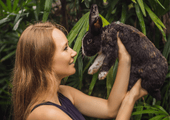
Reasons Why You Should Choose Cruelty-Free Cosmetics Instead!
With increasing exposés unveiling the ugly truth behind animal testing that goes on in the beauty industry, it is lit...
-

Celebrate Singles Day with Makeup That Empowers – 22% Off at LIHT Organics!
This Singles Day, treat yourself to beauty that goes beyond skin-deep. At LIHT Organics, we believe makeup is about s...
-

Preparing for the Cozy Beauty of Autumn: A Preview of Your Fall Look
As we bid farewell to the warm, sun-kissed days of summer, it’s never too early to start dreaming about the enchantin...

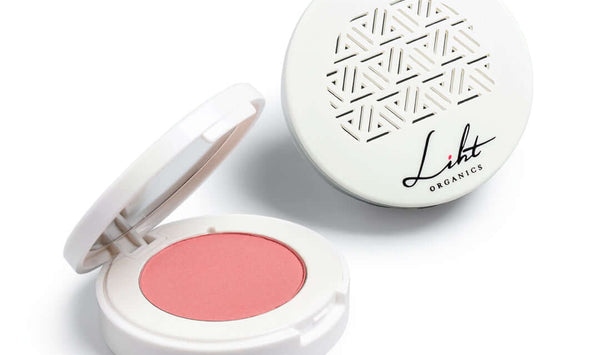
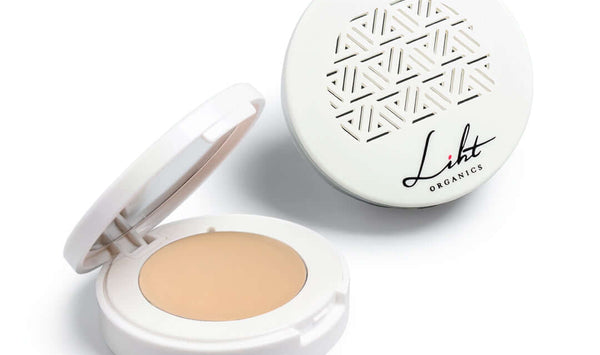
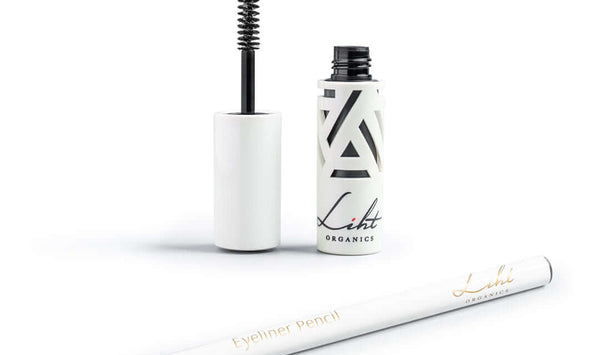
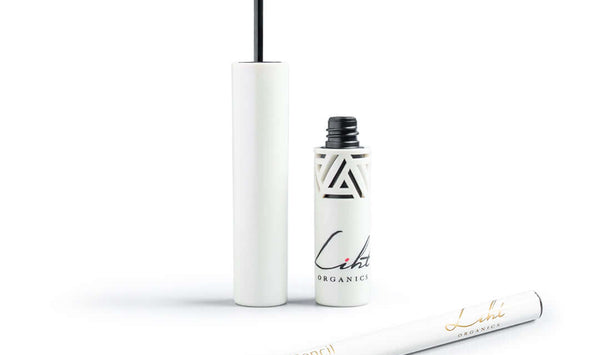
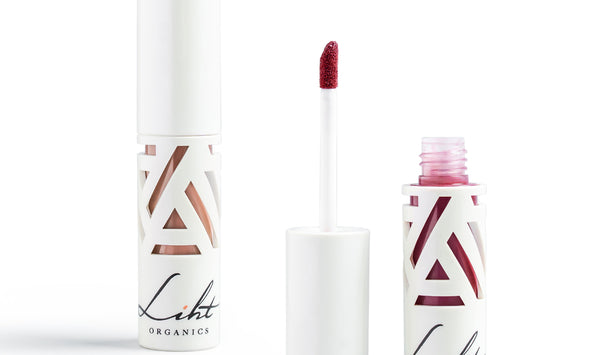
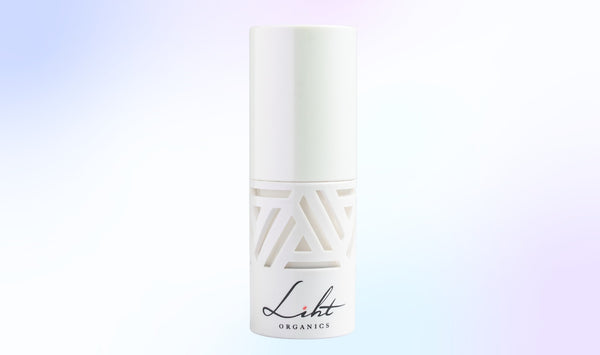

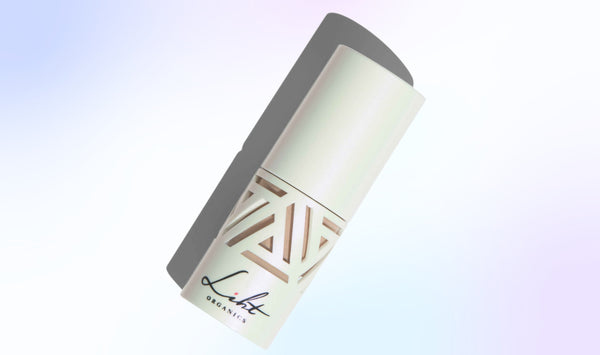
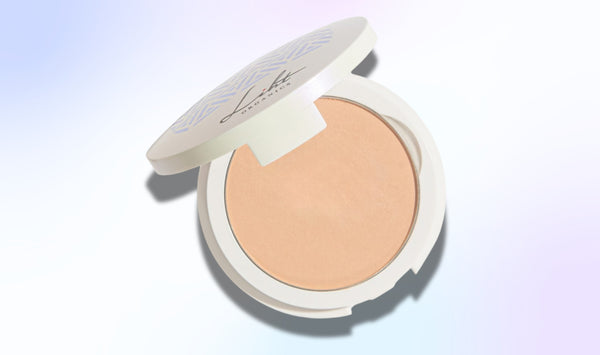
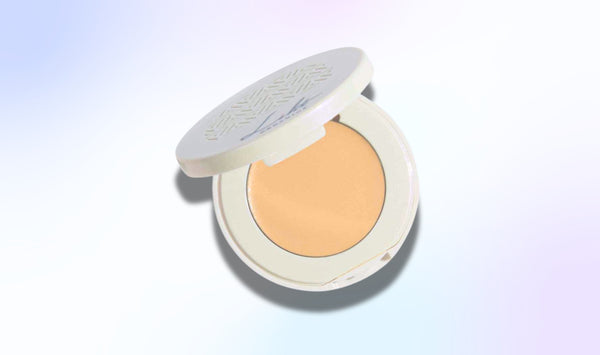
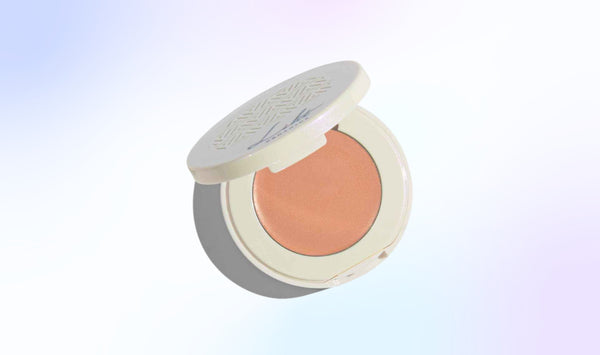
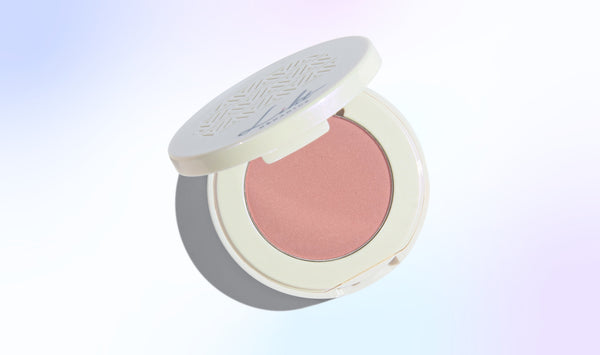
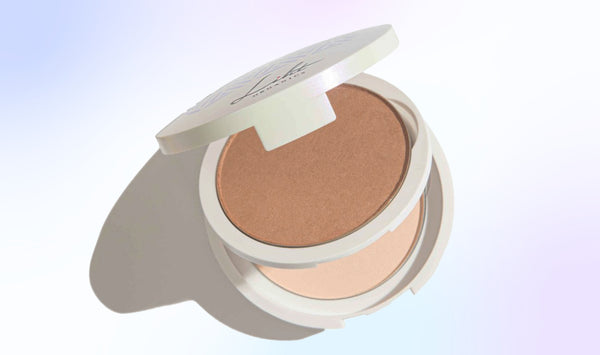
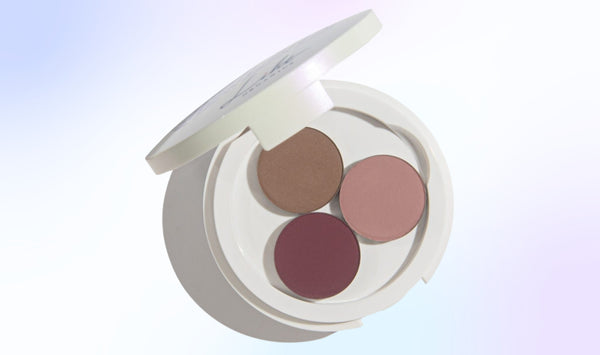
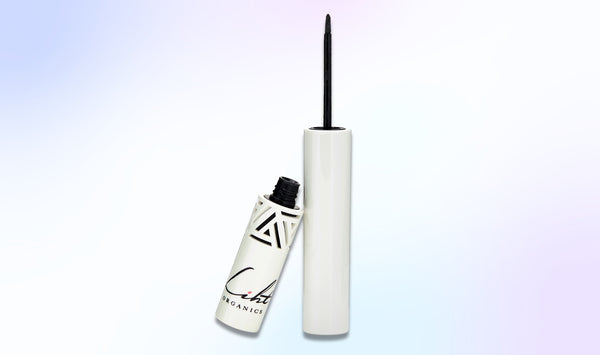
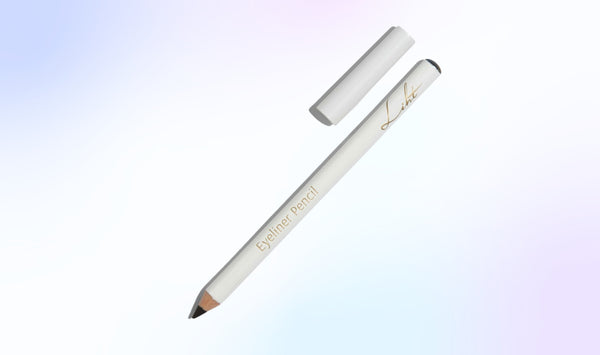
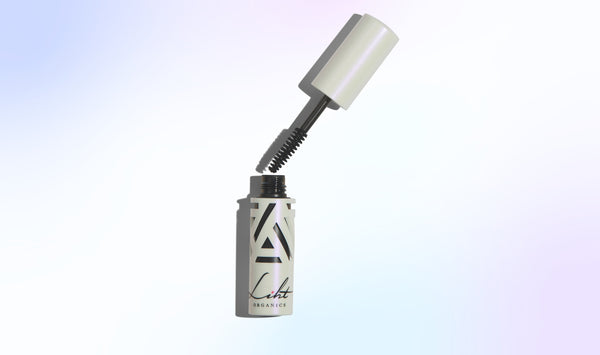
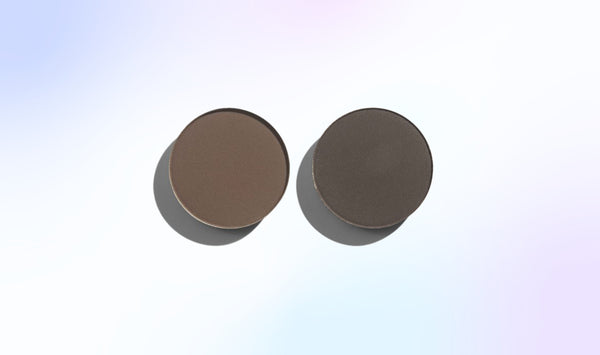
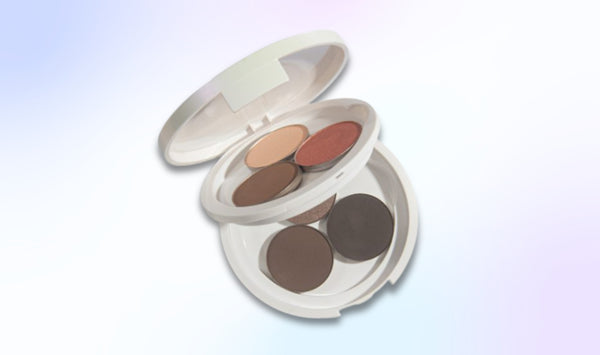
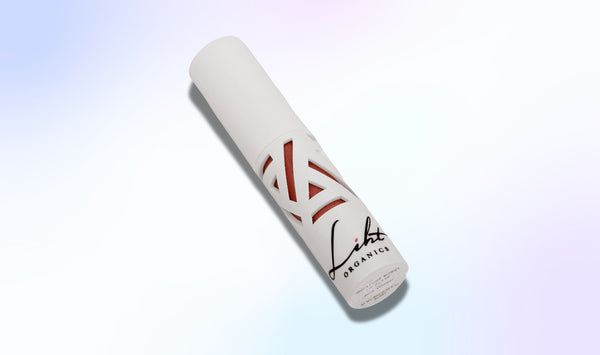
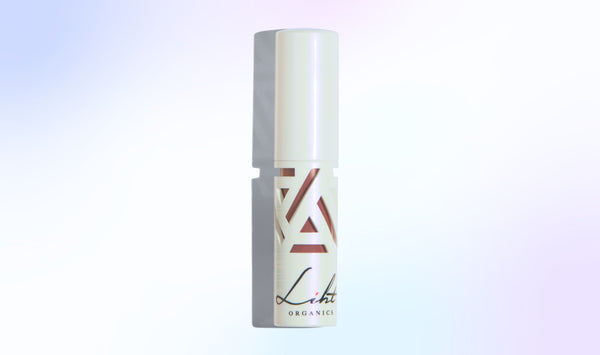
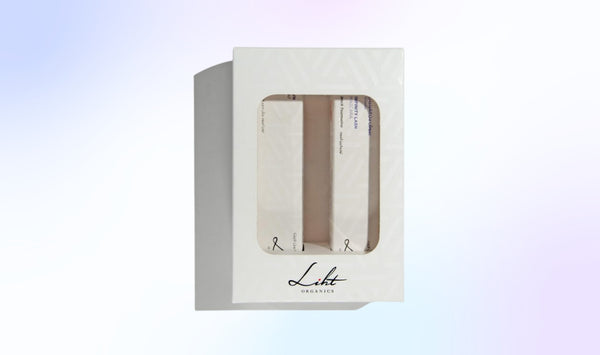
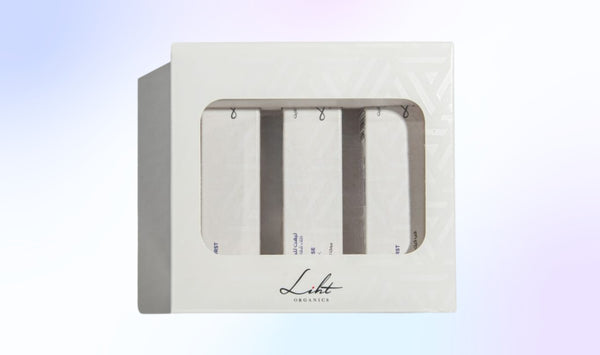


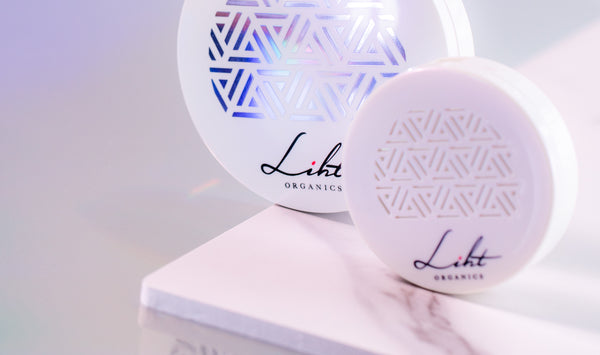
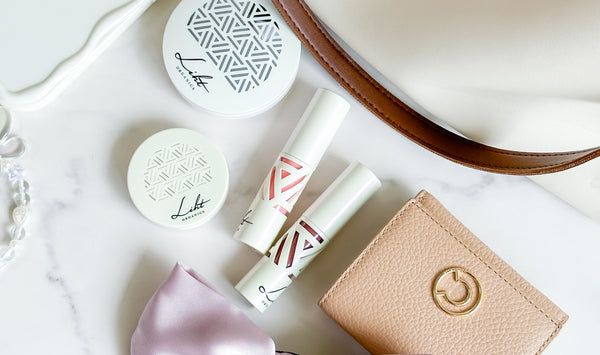
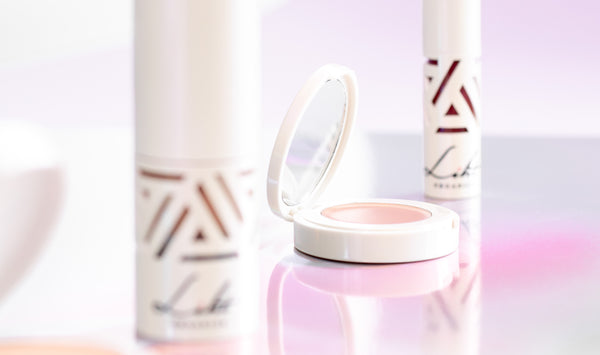




![[FEATURE] Liht Organics to debut at TFWA Asia Pacific show](http://lihtorganics.com/cdn/shop/articles/1_1.png?v=1759328400&width=170)
![[FEATURE] The Singapore-based organic makeup brand is a first-time exhibitor at this year’s TFWA Asia Pacific Exhibition in Singapore in May 2025](http://lihtorganics.com/cdn/shop/articles/2_1.png?v=1759328386&width=170)
![[FEATURE] Travel Retail Awards 2025 finalists - Best Make-up Product Color-Intense Liquid Lipstick – Liht Organics](http://lihtorganics.com/cdn/shop/articles/4_e2f54f0f-fcd1-46e7-9990-fc9d29e35131.png?v=1759328382&width=170)
![[FEATURE] Liht Organics targets expansion in travel retail](http://lihtorganics.com/cdn/shop/articles/3_1.png?v=1759328346&width=170)
































































